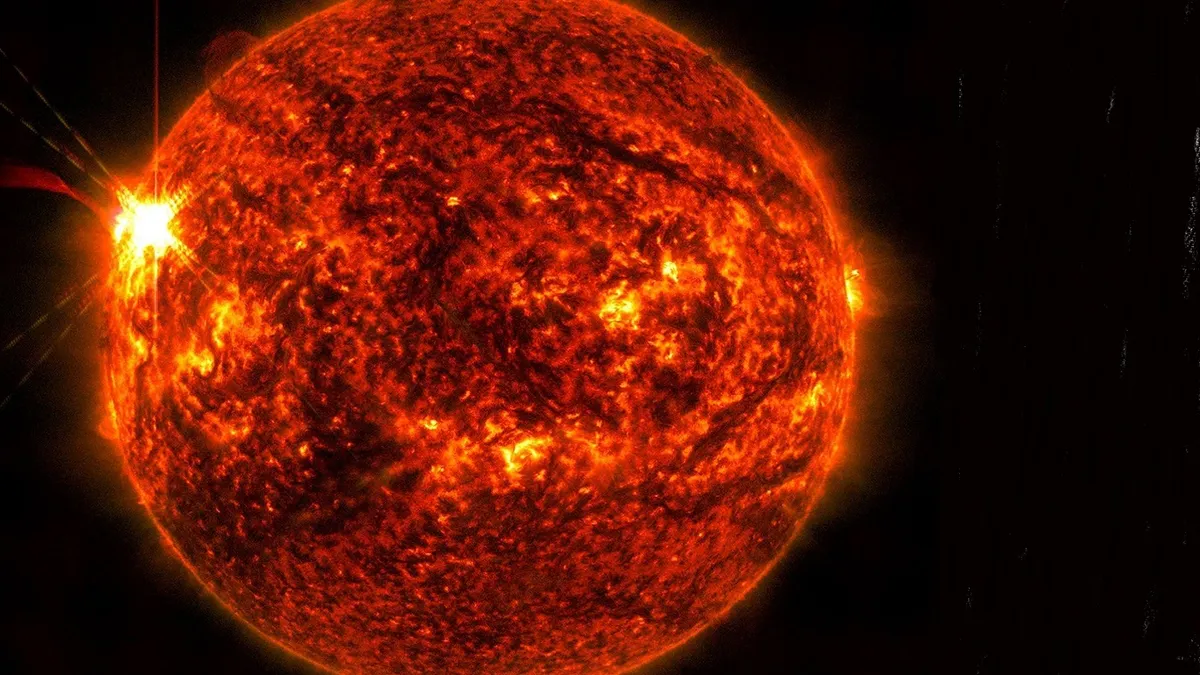
The sun isn’t just rising—it’s raging. On Wednesday, the fiery ball of gas unleashed two massive solar flares, including the strongest eruption of the year to date. These back-to-back solar storms have resulted in significant disruptions, causing shortwave radio blackouts across five continents. Scientists are monitoring the sun’s activity closely, as there are clear signs that it is ramping up.
According to Spaceweather.com, regions in North America, South America, Southeast Asia, Africa, and the Middle East have reported shortwave radio blackouts since Tuesday. The latest solar flare peaked at 4:25 AM ET, releasing streams of plasma and charged particles into the cosmos as the sun emitted a powerful X-class flare.
On Wednesday, the Space Weather Prediction Center recorded an impressive X2.7 flare just before 4:30 AM ET, following an earlier M5.3 flare that occurred hours prior. Additionally, NASA observed a separate X1.2 flare erupting around 11:38 AM ET the previous day. NASA’s Solar Dynamics Observatory, which was launched in 2010, captured a striking image of this event, showcasing the X-class flare as a fiery tendril bursting from the sun’s surface.
Shawn Dahl, a forecaster at NOAA’s Space Weather Prediction Center, explained that the X2.7 flare occurred while the sun was directly over the Middle East, leading to high-frequency radio signal disruptions in that area for approximately 10 minutes at the storm’s peak. “Aside from the potential for high-frequency communication degradation due to some shortwave fade issues, we are unaware of any significant impacts,” Dahl stated in a written communication.
Solar flares are classified into five categories based on their strength. Starting from the weakest, these classifications are A-class, B-class, C-class, M-class, and the most powerful, X-class. Each letter signifies a tenfold increase in the energy released by the sun compared to the previous class, according to NASA. To specify the intensity further, scientists use a scale from 1 to 9, which reflects the severity of the solar storm.
Strong solar storms can pose risks to astronauts in space and have the potential to interfere with GPS systems and satellites. When these eruptions are directed toward Earth, they can disrupt radio communications and may even lead to power grid failures as streams of charged particles collide with our planet. However, solar storms can also produce less threatening effects, such as stunning displays of the northern lights. When charged particles interact with Earth’s magnetic field and collide with atoms and molecules in the upper atmosphere, they can create auroras that reach much farther south than usual.
Scientists reported last year that the sun has entered a particularly active phase of its natural 11-year cycle, known as the solar maximum, which is expected to continue throughout this year. This means that more solar storms are likely in the months ahead, making it crucial for scientists and the public to stay informed about the sun's activity and its potential impacts on Earth.